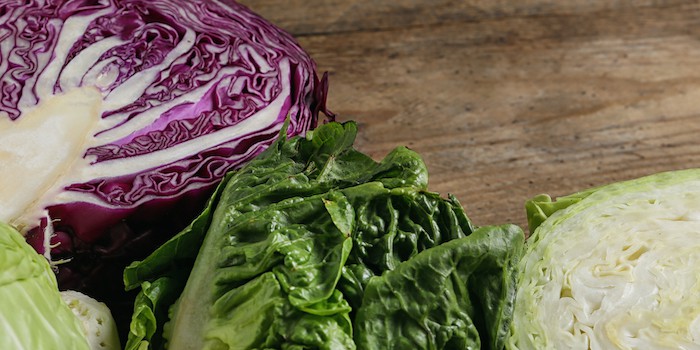#heart #health #cabbage
“Cabbage is a cruciferous vegetable and has been shown to have anti-inflammatory benefits, therefore recommended for those at risk for heart disease“– Paul Ebeling
Cabbage belongs to the Brassicaceae family of vegetables. These include other vegetables such as broccoli, brussels sprouts, kale and cauliflower. There are over four hundred different varieties of cabbage to choose from.
Some of the more popular varieties are red, green, savoy, bok choy, napa and Chinese cabbage.
The exact history of cabbage is difficult to trace, but it is believed to have been domesticated before 1000 BC somewhere in Europe.
The 1st pickled version of cabbage was made by soldiers in Mongolia and China. Pickled and fermented cabbage was taken by Hun and Mongol warriors to Europe.
Cabbage cultivation eventually spread from northern Europe into Poland, Germany, and Russia.
The high vitamin C content of the fermented cabbage dish known as sauerkraut helped prevent scurvy for sailors. Early German settlers introduced cabbage and sauerkraut into the United States.
China, Poland, Japan and The Russian Federation are some of the leading producers of cabbage today.
Nutrients in cabbage: Cabbage contains several important nutrients. Especially potassium, vitamin C, vitamin B6, folic acid, calcium, biotin, manganese and magnesium. Red cabbage also contains anthocyanins. This is a phytochemical also found in Bermuda onions, beets, and blueberries.
Sauerkraut (fermented cabbage) is an excellent source of vitamin C and vitamin K, and a good source of potassium, iron, folate, and fiber.
You might not immediately think of cabbage as a heart-healthy food, but you may want to add it to your eating plan if you are trying to be more conscious of the health of your ticker. Cabbage is a cruciferous vegetable and has been shown to have anti-inflammatory benefits, therefore recommended for those individuals who are at risk for heart disease.
The research is there, too: According to a 2021 study published in the British Journal of Nutrition, women who ate more cruciferous veggies—like cabbage, but also Brussels sprouts, cauliflower, and broccoli—were 46% less likely to have something known as abdominal aortic calcification, which is can be a predictor of future cardiovascular events. The study concluded that eating more cruciferous veggies can protect against that buildup of calcium and ultimately benefit heart health.
Cabbage, especially Red cabbage, is an excellent source of the antioxidant beta-carotene. Beta-carotene is converted into vitamin A (retinol) in the body. Vitamin A helps to improve vision and is needed for the health of our eyes.
Moderate vitamin A deficiency can result in “night blindness”. Severe vitamin A deficiency can result in dryness and opacity of the cornea.
Cabbage is an excellent source of vitamin K, important for the metabolism of sphingolipids. Sphingolipids are an important class of lipids found in high concentrations in membranes of the brain cells. Alterations in sphingolipid metabolism are associated with age-related cognitive decline and neurodegenerative diseases like Alzheimer’s.
Studies have shown an association between increased intake of vitamin K and improved cognitive performance as well as less severe and fewer subjective memory complaints in older individuals, 1 study found that individuals with early stage Alzheimer’s consumed considerably less vitamin K in comparison to a cognitively healthy control group.
Also, Cabbage is a good source of multiple B vitamins, of which B12, B6 and B9 slow shrinkage of the brain by lowering homocysteine. High homocysteine levels increase the risk of cognitive impairment, brain shrinkage and dementia.
The homocysteine amino acid occurs in the blood naturally and plays an important role in metabolism. The vitamins B12, B6 and B9 help in metabolizing homocysteine, which in turn reduces homocysteine levels in the bloodstream.
B vitamins are required for the functioning and producing of neurotransmitters, the chemicals relaying signals between brain neurons. B vitamins are also required for myelin maintenance, which is the fatty sheath surrounding the cells of the nerves. Vitamin B12 helps in promoting red blood cell development, which carry oxygen to the brain.
Cabbage is a great source of soluble fiber with about 40% of the fiber being soluble fiber. Consuming 10 – 25 grams of soluble fiber daily is recommended as part of a diet for lowering cholesterol.
Cabbage for blood pressure: healthy eating plan choices can be effective for the prevention of high blood pressure as well as the lowering of high blood pressure.
Vitamin C in cabbage: 1/2 cup of cabbage provides about 28 mg of vitamin C, which is a 3rd of the recommended daily intake. Increasing dietary vitamin C can help to improve skin health. Research has shown an association between eating plans high in vitamin C and less wrinkling of the skin as well as better skin appearance.
Cabbage intake has been associated with a lower incidence of lung, colon, breast, and cervical cancer. Population studies have revealed that the greater the intake of vegetables from the cabbage family, the lower the rates of cancer. A study revealed that women who consumed 3 or more portions of cabbage each wk were 72% less likely to get breast cancer.
Cabbage is largely associated with heart health and weight loss because of the cabbage soup eating plan. The 7-Day cabbage soup plan is a crash diet which requires eating large amounts of cabbage soup for a wk.
The benefits of cabbage soup is that it limits calories, and can be a quick and effective method for losing weight. The cabbage soup eating plan is nutritionally incomplete, is not sustainable, and should not be adhered to for more than a wk at a time.
Eat healthy, Be healthy, Live Lively
#heart, #health, #cabbage, #eyes, #brain, #cancer, #vitamins, #weight,









